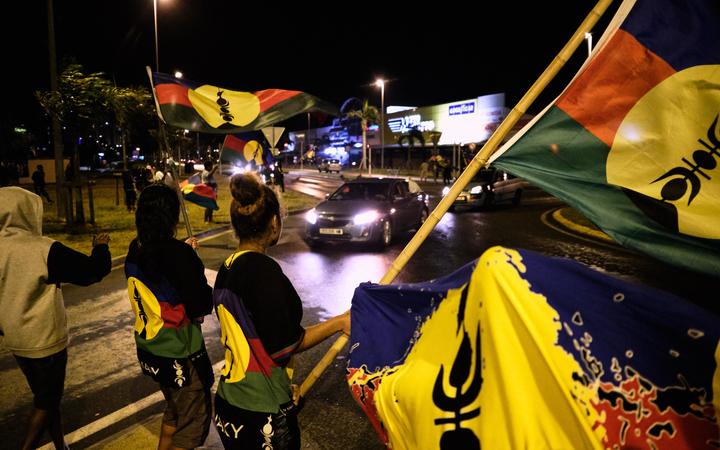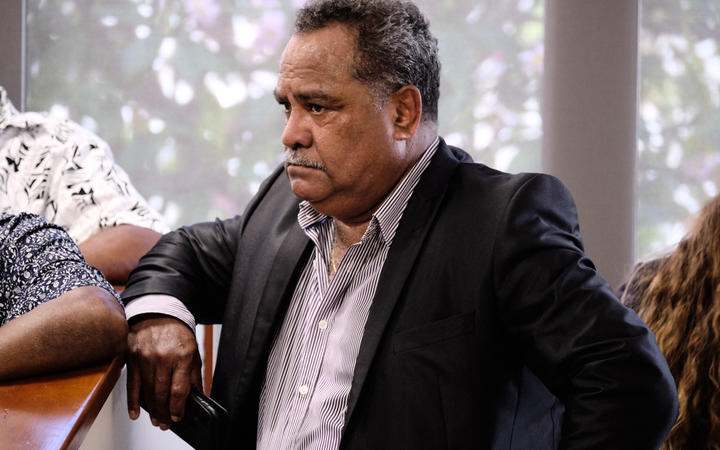New Caledonia has elected its first pro-independence Kanak president.
Louis Mapou was elected today in Noumea after months of negotiations between the two main pro-independence Kanak political groupings UNI and UC FLNKS.
Australian journalist Nic Maclellan, a longtime writer on New Caledonian politics, says it is a significant victory for the Kanak people.
“For the first time in nearly 40 years the government of New Caledonia will be led by a Kanak independence leader,” Nic Maclellan said.
“Particularly since the signing of the Noumea Accord (a framework agreement that governs New Caledonia’s politics) in 1998, governments of New Caledonia have been led by an anti-independence leader,” he said.
Maclellan also pointed out that Louis Mapou’s presidency comes at a crucial time for New Caledonia.
“The French government unilaterally has set the date of December 12 this year for the next referendum on self-determination,” he explained.
Third and final referendum
The referendum in December is the third and final plebiscite under the Noumea Accord. The results of the last two polls have been narrowly in favour of remaining with France.
In 2018, the result was 56.4 percent for maintaining the status quo and 43.6 percent in favour of independence.
In 2020, margin was reduced slightly with 53.26 percent voting to stay with France and 46.74 percent percent for independence.

Maclellan said having Louis Mapou in power ahead of the third and final referendum would give the Kanaks more momentum going into the vote.
“Obviously the presidency is an important position in terms of setting the government’s agenda, in terms of liaising with the French government,” he said.
Maclellan said it would also allow them a stronger regional voice at the Pacific Islands Forum (PIF).
“One would presume that Mapou will be asking the Forum for more active engagement in the decolonisation process and monitoring of the referendum in December. It (the presidency) is a crucial position in any government and will set the tone for actions,” he said.
The president-elect
Louis Mapou is a longtime independence activist in the Southern Province where the capital Noumea is based.
He is a member of the party of Kanak Liberation PALIKA which within the Parliament is a member of the UNI (National Union for Independence) parliamentary group.
“He has been a leading figure in the independence movement in the south and is a fairly key player within the FLNKS, the umbrella body that unites a number of parties,” Maclellan said.
According to Reuters, Mapou sits on the board of directors of France’s Eramet (ERMT.PA), which runs nickel mines, the Doniambo ferro-nickel plant near the port of Noumea, and a refinery that produces a type of nickel that can be used in electric vehicle batteries.
He also worked as the director-general of New Caledonia’s Rural Development and Land Development Agency from 1998 to 2005.
Speaking in French shortly after his election, Louis Mapou was quoted by local media as saying: “It is an honour and a heavy responsibility.”
The plot twist
Louis Mapou’s election to the presidency came after a five-month deadlock with fellow pro-independence MP Samuel Hnepeune.
Maclellan said a surprising development was that Samuel Hnepeune had announced he would be stepping down from the collegial government.

Head of the UC – FLNKS list, nationalists and Oceanian Awakening, Samuel Hnepeune. Photo: AFP or licensors
Next inline to fill his spot on the UC list is a member of the Pacific Awakening Party who missed out on a place in government during the election.
The party, which represents mainly people originally from Wallis and Futuna, has usually been the king maker in government, but missed out on a spot this time round courtesy of some strategic voting by the anti-independence groups.
Maclellan said there was now a possibility they could get back into government.
“That would not only maintain the majority of islanders within the government. It would also open the way for a pro-independence speaker of the Cational Congress,” he said.
“So it looks like this consensus which has brought Mapou to the head of the government will also involve changes within the Congress and within the provincial assemblies.”
Louis Mapou is expected to be officially sworn in as president of New Caledonia in the coming days.
This article is republished under a community partnership agreement with RNZ.
Article by AsiaPacificReport.nz





